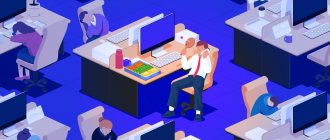Published: 10/11/2018 Updated: 06/23/2021
With prolonged exposure, stress triggers a cascade of physiological reactions that negatively affect health. The heart rate and breathing rate increase, and body temperature rises. All this can lead to problems with the heart and blood vessels, exacerbation of chronic diseases, and decreased immunity.
Learning to cope with the normal stresses of life will help you maintain strength and a positive attitude for productive work and communication with your loved ones. Below are recommendations to help you get rid of stress.
Treating Stress and Depression: Natural Medicines
If the stage of the disease allows, psychotherapists recommend taking herbal medicines. They are safe and have sufficient effect for treatment. Some of them are familiar to many from home medicine cabinets and can be purchased without a doctor’s prescription:
- Valerian tincture
- motherwort
- "Negrustin"
- "Persen"
- "Novo-Passit"
Valerian tincture copes well with the stress that haunts us every day. The drug contains a plant extract that helps slow the heartbeat and calm the nervous system. Valerian relieves insomnia by providing a hypnotic effect.
Motherwort has a contraindication - it should not be taken by people with hypotension. The drug has a sedative effect, relieves stress and anxiety, but helps lower blood pressure. Motherwort is effective in treating irritability and neurasthenia.
The drug "Negrustin" contains St. John's wort extract. The effect of this herb on the human body helps to increase efficiency and raise general tone. Negrustin is used in the treatment of mild depression.
"Persen" is a drug that relieves stress and anxiety. It contains a complex of herbal extracts that have a positive effect on a person’s emotional state: valerian, peppermint and lemon balm. In addition, Persen helps overcome irritability and normalize sleep.
The composition of the drug "Novo-Passit" includes extracts of the following medicinal herbs: motherwort, St. John's wort, valerian, lemon balm, passionflower, hops and black elderberry. It has the properties of the drugs described above and copes well with stress. Taking Novo-Passit not only improves your well-being, but also has a positive effect on sleep.
Genetics
Scientists have proven that stress resistance is transmitted to a person at the genetic level. Some can easily get out of any situation, while remaining almost completely calm. Others are thrown into panic even by the simplest situation. Such differences make it impossible for all people to use the same stress management techniques.
Some gene variants suggest that destructive consequences develop too quickly. People with this heredity should avoid irritants at all costs. The functioning of our nervous system depends entirely on the genes that we inherited from our ancestors.
Treatment of stress and depression: psychostimulants and nootropics
Drugs in this category normalize the processes of thinking and remembering. They stabilize brain activity and increase its resistance to stressful situations. Treatment of stress and depression with the help of psychostimulants and nootropics can relieve the patient of lethargy, drowsiness and depression. With uncontrolled use (not under medical supervision) of drugs in this category, the following side effects may occur:
- tremor
- tachycardia
- sweating
- hypertension
- dry mouth
- headache
In modern psychotherapy, there are many names of psychostimulants and nootropics. Their use is due to the relief of depression and other mental disorders. If the disease is advanced, then you cannot do without the use of these potent drugs. In addition, psychotherapists recommend including a variety of relaxation programs in the treatment program:
- massage
- pool
- walks in the open air
How does depression develop in stages?
At first, the patient experiences a depressed state, which he himself attributes to fatigue, a hard work week, drinking alcohol and other reasons. At the same time, he wants to retire from others and at the same time is afraid of being left alone.
Then the stage of acceptance occurs: awareness of a dangerous condition occurs, the problem gets worse, the intensity of negative thoughts increases, the body and immune system malfunction.
The third stage - in the absence of adequate therapy, the patient loses control over himself, aggression increases.
Signs of the effects of stressful situations
The influence of stress manifests itself in many ways. It is important to identify them in time to prevent the condition from worsening.
- Sudden local pain in the abdomen or head.
- Influxes of weakness, apathy and depression.
- Increased emotional arousal, inability to calm down quickly.
- Frequent smoking and drinking alcohol.
- Memory impairment and slow reactions.
- The need to go to the toilet frequently.
These points indicate that stress is already having too much of a negative impact on you. If you have such signs, you should think about how to get rid of the tension that has arisen. Moreover, this must be done quickly, avoiding complications at the psychological level.
What causes depression?
In all likelihood, the development of depression is associated with a violation of chemical metabolism in the brain, which in turn causes a deterioration in the communication of brain cells with each other. There is also a genetic predisposition to the development of depression. Depression can be associated with certain events in your life, such as the death of a loved one, divorce or job loss. Taking certain types of medications, abusing alcohol or drugs, or having an underlying medical condition can also lead to depression. Depression is NOT a result of weakness of character, laziness or lack of willpower.
What is psychotherapy?
During a psychotherapy session, you discuss with your family doctor, psychotherapist or psychiatrist certain events that are happening in your life. The emphasis may be on your feelings, hopes or relationships. You can also focus on your behavior, how it affects you, and what you can change about it. A course of psychotherapy usually lasts from 8 to 20 sessions.
Will I have to go to the hospital?
Depression is usually treated without hospitalization. Inpatient treatment is required if you have comorbidities that may interfere with treatment or if you are at risk of suicide.
How long does depression last?
It depends on how soon you receive qualified help. Left untreated, depression can last for weeks, months, or even years. The main danger of untreated depression is suicide. Treatment can help relieve depression in 6 to 8 weeks or less.
Treatment of stress and depression: anti-anxiety medications
In the treatment of depression, drugs that differ in the active substance are used. They can be natural, plant-based or created in laboratory conditions, affecting brain receptors. An experienced psychotherapist will tell you which medicine to use in a particular case.
Antidepressants are divided according to the principle of their effect on the human body into the following types:
- stimulants
- balanced action drugs
- sedatives
Such drugs are sold strictly according to a doctor's prescription. They are used in cases where the patient experiences rapid heartbeat, anxiety, irritability and high excitability. Indications include lethargy, melancholy, apathy, suicide attempts and deep depression. Self-administration of antidepressants is prohibited.
Severe depression symptoms
The fact that a person is severely depressed is determined by the following symptoms: depressed mood, decreased performance and activity, constant feeling of fatigue, inability to concentrate on anything, constant self-flagellation and guilt, low self-esteem, thoughts of suicide, a gloomy and hopeless look for your future, insomnia or, conversely, severe drowsiness, loss of appetite.
The clinical picture of severe depression is as follows: a person experiences a persistent feeling of melancholy every day; his mood is depressive; signs of psychomotor retardation are observed; he cannot concentrate his attention on anything; sexual desire decreases; in the morning the patient feels tired and exhausted due to the fact that he cannot sleep normally at night. Manifestations of severe depression also include a feeling of suffocation and discomfort in the chest, complete apathy, pessimistic views of one’s future (a person always expects an accident to happen), lack of will, inability to make any decisions, constant drowsiness and a feeling of laziness.
Treatment of stress and depression at the Ultramed clinic
A large number of drug names presupposes knowledge of their properties and individual characteristics of the course of the disease. Based on the above information, you can understand that contacting a professional psychotherapist is the best way to find the right medication to treat stress and depression. Do not self-medicate - trust the professionals and do not delay visiting a doctor.
If you experience anxiety, nervous breakdowns or apathy, you should immediately contact a specialist to avoid the serious consequences of prolonged depression. Our clinic employs experienced psychotherapists who will help you get rid of stress and depression, even if it has become clinical. At the clinic, you will receive comprehensive treatment that takes into account the condition of internal organs affected by the influence of prolonged experiences and rapid heartbeat.
Call us and we will answer all your questions - the Ultramed clinic hotline is open around the clock, seven days a week, seven days a week!
Types of depression
- Neurotic – people with low self-esteem, insecure, and straightforward people often suffer. They constantly experience a sense of injustice, and this is where apathy arises.
- Clinical – bad mood, loss of energy, problems with appetite and sleep. Suicidal tendencies are often observed. This clinical picture can last at least 2 weeks.
- Vegetative – manifested by such symptoms as tachycardia, drop in blood pressure, tinnitus.
- Psychogenic - develops after severe psychological trauma - divorce, loss of a loved one, dismissal from work, betrayal, etc. Accompanied by mood swings, anxiety, and excessive sensitivity.
- Masked - often the disease manifests itself secretly. Apathy, solitude and decreased interest in life can only appear as negativity and fatigue accumulate.
- Asthenic – the condition is manifested by fatigue, sleep disturbance, emotional imbalance due to accumulated difficulties, stress, physical and psychological stress.
- Postpartum – usually occurs 10-14 days after delivery. The young mother shows an increased sense of excitement for the baby, and constant lack of sleep and fatigue further worsens the situation. In addition, the mother's condition is also affected by hormonal levels.
- Somatogenic – attacks occur due to disturbances in the endocrine system, the formation and proliferation of neoplasms, both benign and malignant.
- Alcoholic depression – depression is accompanied by excessive consumption of alcoholic beverages. The post-alcoholic state is accompanied by an uncontrollable craving for alcohol and an increase in withdrawal symptoms when giving up alcohol.
- Bipolar – the patient experiences a change from euphoria to a depressive, manic disorder. But in the period between these phenomena, caused by various factors: stress, loss of means of popularity, etc., a person lives a normal life and does not show symptoms of the disease.
Treatment of stress and depression: powerful drugs
In severe cases, after examination by a doctor, the patient may be prescribed potent anti-depression medications. They have a calming effect by acting on brain receptors. Some of the most common and effective drugs are:
- Nialamid
- Bethol
- Iprazide
- Trinylcypromine
- Dosulepin
- Selegilin
- Anafranil
- Incazan
These drugs are used strictly under the supervision of a doctor. They have many contraindications and side effects. When used independently, they can not only worsen the condition of a depressed person, but also cause serious damage to the body as a whole. As a result of non-prescription use of the above drugs, the patient may develop dependence (pharmacy addiction).










